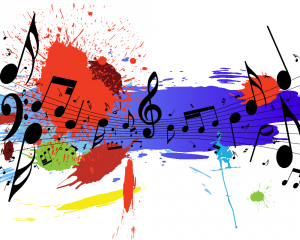 Apple’s iTunes application is obviously compulsory if you’re a Mac user, while the Windows version is essential should you want to sync your music collection to an iOS device. But what if you’re an iTunes user who wants to sync with another device -- a MP3 player, media tablet or, gasp, Android phone?
Apple’s iTunes application is obviously compulsory if you’re a Mac user, while the Windows version is essential should you want to sync your music collection to an iOS device. But what if you’re an iTunes user who wants to sync with another device -- a MP3 player, media tablet or, gasp, Android phone?
Obviously Apple being Apple has made no provision for devices other than its own to get quick and convenient syncing capabilities with iTunes, but you don’t have to settle for Apple’s decision thanks to two separate solutions called Notpod and TuneSync.
Notpod, the Application Formerly Known as iTunes Agent, is Windows-only, but works with any MP3 player, phone or tablet that shows up as a removable drive when you plug it into one of your PC’s USB ports. All you have to do is set up a connection to said device, choose a “synchronization pattern” (gobbledegook for choosing how music files will be named and organized on your device) and point Notpod to the appropriate folder on your device.
Once you click Save and switch to iTunes you’ll see a new folder called My Devices appear in the Playlists, complete with your device name underneath it. Just drag the files you wish to sync to your device on to this playlist, then click the Notpod Notification area icon, read the warning and then sync your music. It’s quick, painless and simple.
Wireless Sync
If you have an Android device, and you’re hopping mad at iOS 5’s wireless sync feature, fret not: an inexpensive app coupled with the free TuneSync Server software for both Mac and Windows could be the answer. TuneSync is more sophisticated than Notpod in that it offers more control over what gets synced to your Android device. It also supports wired syncs (except on Honeycomb devices) and can even send Amazon MP3 purchases from your Android phone back to your iTunes library on the desktop.
It takes a bit of setting up, but thankfully you can try the app for free by installing TuneSync Lite. This allows you to sync up to 20 tracks from one playlist with your Android device. If it works, you then remove TuneSync Lite and purchase the full version for $5.99.
The theory is great, and if you’re a Windows user you should have no problems wirelessly syncing your iTunes library to your Android phone or tablet. Unfortunately the latest version of the Mac server has resulted in many people, ourselves included, being unable to sync from iTunes to Android. Everything appears to work correctly until you click Sync, at which point the app just seems to hang while checking for files to transfer. Some people have reported success clearing the application settings after each sync, but it didn’t work for us and is a convoluted workaround even if it had done.
As a result, we preach caution to Mac users with the current -- version 2.0.8 -- build. Windows users however should give it a go, and hopefully you’ll soon be able to keep your iTunes library perfectly and effortlessly in sync with your Android device as well as any iPads, iPhones or iPod touches you have lying around.
Photo Credit: Pavel K/Shutterstock

